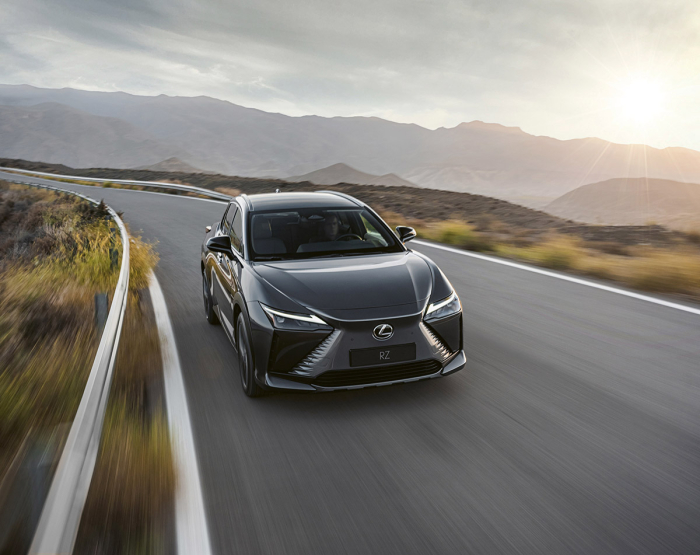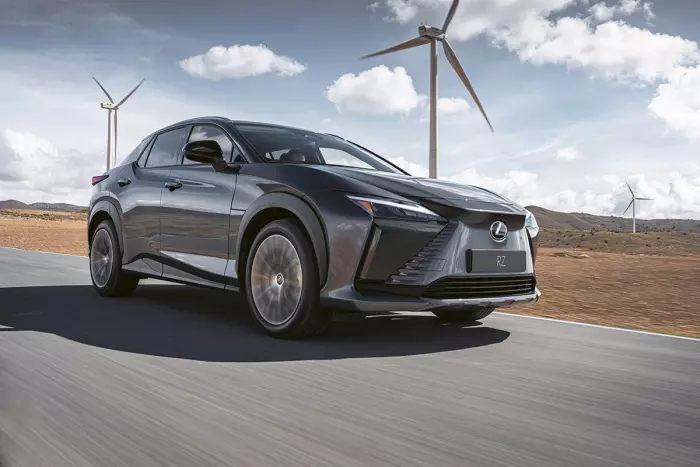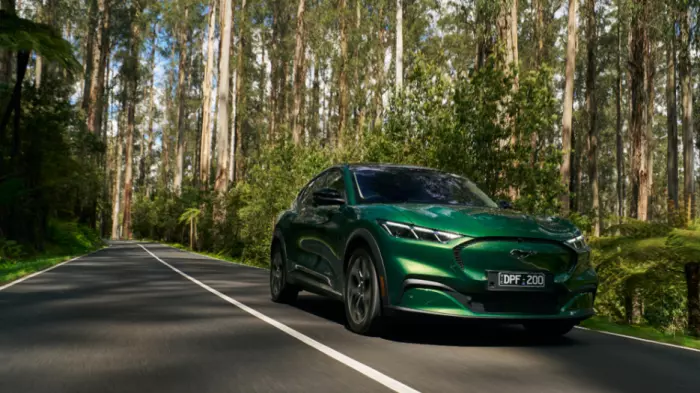Well done, Toyota folk. This is more like it. The new electric SUV from Toyota-owned Lexus – the RZ450E – is one of my favourite cars of the year.
After years of watching competitors, new and old, launch electric vehicles, all the while protesting that hybrid is the way to go until Japan says otherwise, Lexus has a car to be proud of.
It is pricey, and the range is a tad miserly. And it beeps a lot. I mean, it really, REALLY likes beeping at me. “You locked the doors. Allow me to beep loudly five times.” “You looked at the stereo and not the road. I will now beep at you.” And so on.
But bugger it, nothing’s perfect, and this car is so close that the rest of this review promises to be quite boring.
The RZ450E is built on Toyota’s new e-TNGA platform, which will also be used by the Toyota BZ4X when it gets here. Lexus is trumpeting what it calls Direct4, which means its all-wheel-drive system “achieves quick and linear response according to driver input”.
It has a 150kW front motor and an 80kW rear motor, powered by a 71.4kWh battery. This gives a range of 435km (WLTP). That might seem on the low side, but at least it is an accurate number, unlike what many carmakers claim. The Japanese, apparently, would be horrified to mislead.
The maximum charge is 150kW, which is as good as we can do here in NZ. Speed-wise, it will go 0-100km/h in 5.3 seconds.
The base model is $134,900, and a “dynamic” variant is $10,000 more to add 20” wheels, power-dimmed panoramic roof, adaptive high-beam lights and a heads-up display. This is a rare case where the extra $10k upgrade is well worth it.

The RZ450E will do 0-100km/h in 5.4 seconds. (Image: Lexus)
It is a good-looking car from any angle, in a Lexus way. It is not overly flashy but just sexy enough. From the front, its futuristic grill tells you this is no ordinary petrol car.
The stereo is noticeably superb, thanks to a Mark Levinson 13-speaker system with a 22.4cm subwoofer.
For the price, Lexus is currently offering to install a home charger and give buyers access to the hybrid RX350h Premium for up to 30 days over three years.
If you want one, order now. Lexus’s website warns of low availability and limits on some colours.
Lexus wants to be fully electric by 2035, and that seems like it should be achievable, given how good the RZ405E is. If anything, it should aim for 2030.
Lexus electrification is especially important in New Zealand because Toyota is able to use Lexus EV/hybrid greenness to offset the Toyota Hilux ute’s emissions and reduce overall fleet emissions, avoiding government fees under the clean car standard target. (TLDR: Toyota needs to sell a lot of electric Lexuses.)
Toyota needs to double Lexus sales volumes in the next three years.
At the RZ450E’s launch in August, Toyota NZ chief executive Neeraj Lala said, “We’re using our range of hybrids across Toyota and Lexus to offset a minimum mix of 30% Hilux. Currently, we are about 50% hybrid, which allows us to sell about 30% Hilux. But Hilux emissions will also drop between now and the end of the year, particularly when we introduce our hybrid powertrain in the Hilux.”
And to be fair to Toyota, the NZ company is doing a lot of good things for the environment while waiting for Japan to deliver EVs.
It has produced hydrogen-powered chase boats for the America’s Cup and has invested heavily in silent hydrogen generators, which it showed off at the last Fieldays.
it has also invested in its own paper balers, so instead of paying waste firms to recycle the cardboard packaging that parts come in, they can now sell 400kg bales to be turned into paper. This included swapping its wooden shipping pallets for cardboard ones.
Toyota says the only current path to lower emissions is hybrids because EVs are not yet ready to take over from petrol. “It is not about EVs. It is about the declining trajectory of our emissions footprint,” says Lala.
“The argument has been, 'Well, why don’t you import a bunch of EVs and solve all the problems?' We would if they existed. You could also say they should exist.
“But the transition needs to make sure that product is affordable and accessible.”
The Financial Times reported this week that Toyota is close to being able to make solid-state batteries, which would allow it to leapfrog all existing EVs with a range of 1,200km and a 10-minute charge time.
The plan is to roll out the solid-state batteries from 2027.
Combine all of this, and I’d suggest it is a bit too early to say there is a clear winner in the war between Tesla and Toyota for global supremacy. The old dog just might have one or two new tricks to learn.














